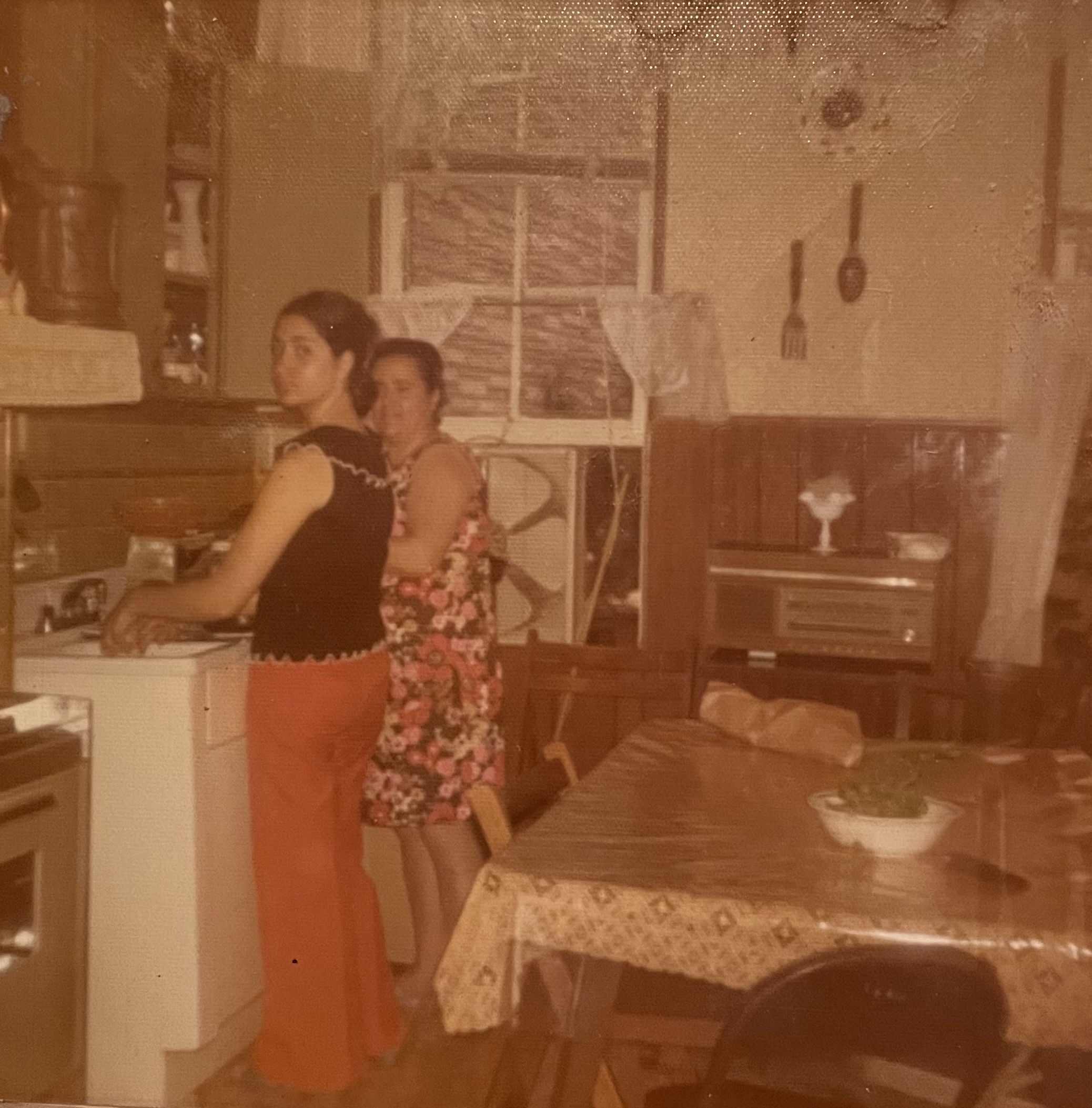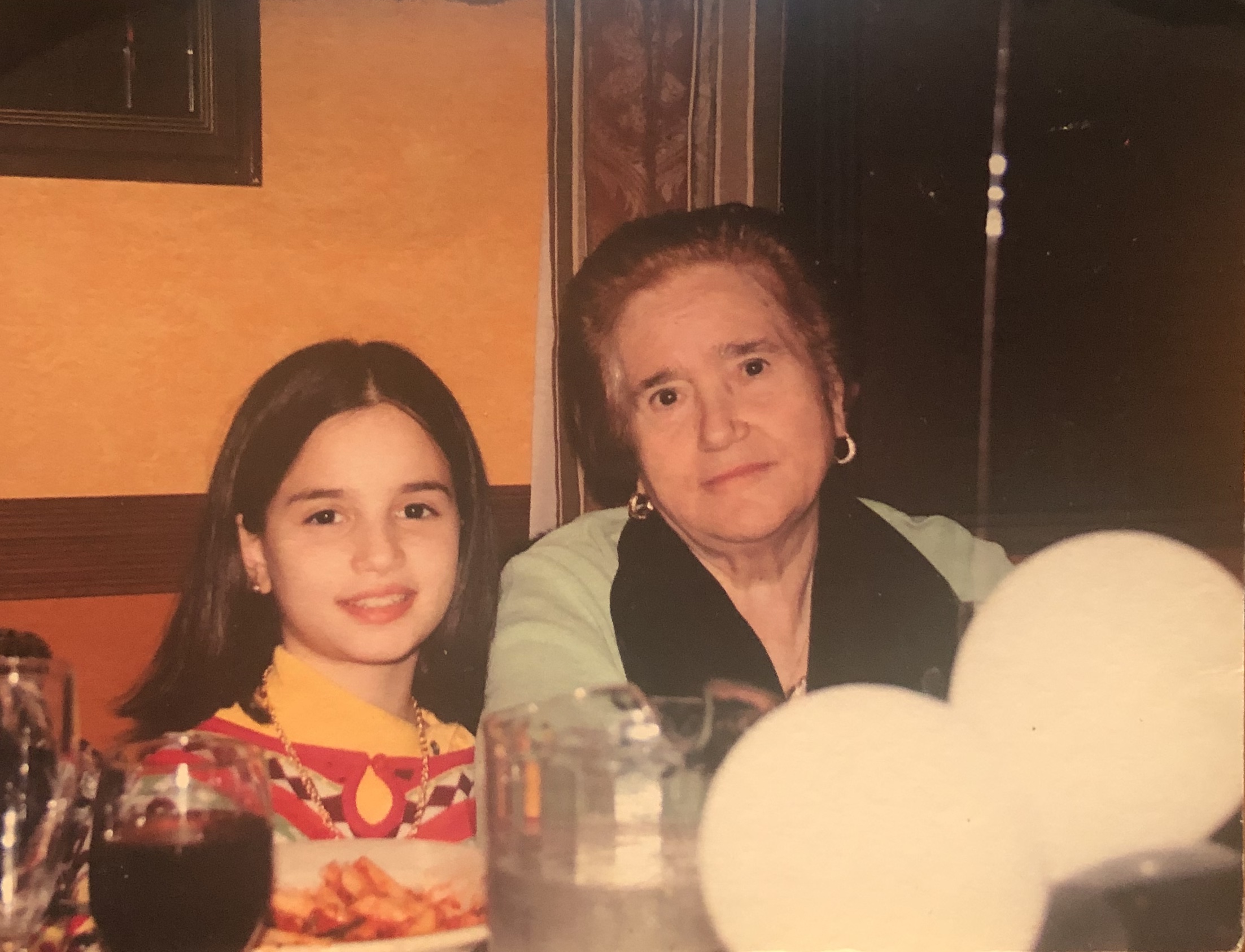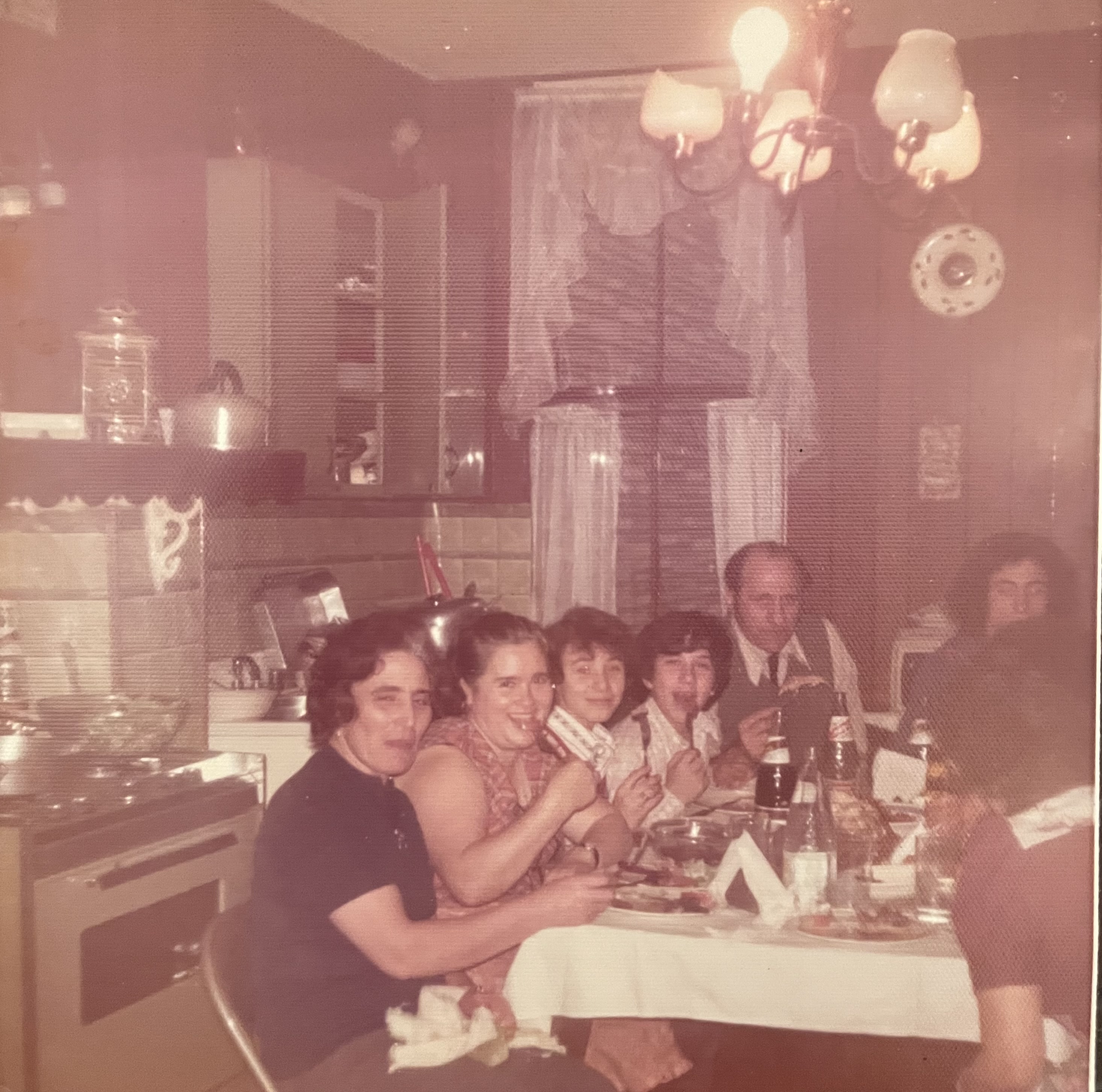
Pina and Rosemarie Sparacio showed up to our interview wearing red—like mother, like daughter. In their case, it's more like being a part of the same winning team. Since September 2021, the New York-based duo has amassed millions of views on TikTok. They also have more than 242,000 followers on Instagram and have a new and growing YouTube channel.
"The most surprising thing has been walking in the street and someone stopping their car and saying, 'Oh my God! You're Pina's Kitchen!'" laughs filmmaker and content producer Rosemarie.
"I feel so privileged, so honored to be recognized by them," says her mother, Pina, who came to the United States from Roccamena, Sicily, in 1970.
The thrill ride started with a few simple, raw videos Rosemarie filmed of Pina cooking her favorite Sicilian specialties. And it just took off.
The three of us sat down to discuss more about how Pina's Kitchen got started, their favorite recipes, surprises, and their next steps.
Tell us more about how Pina's Kitchen began.
Rosemarie: I'm a filmmaker, so I'm always filming or wanting to come up with something to film or a story. I had this idea of a cooking show for a long time with my mom, but it was always too big in my head to put together. I was being very perfectionistic about it, so I forgot about it. And then, when COVID hit, I was just dancing on TikTok like everybody else was and having fun. I garnered a little bit of a following.
I wasn't serious. I was working in film production. Then, one weekend, my mom was cooking something: caponata, a Sicilian dish. I was like, "I'm just going to record it for fun on TikTok." I didn't really think much of it. The way I recorded it was not very cinematically, just in the moment. And I posted a month later. It got 100,000 views. I was like, "That's something! Let's try it again. Maybe sometimes on TikTok, you get one hit, and then that's it."
So we tried it again, and the second video was a dish in the oven: baked ziti. It got 500,000 views. I said, "Welcome to Pina's Kitchen!" And that was the start of it.
Then we did a third video—polpette di ricotta.
Pina: It's a very old recipe. When people in Sicily had no money to buy meat and make their Sunday dinner, they would come up with different ideas for something to serve with the sauce. So, if it was spring and a lot of people made ricotta, they'd make something with that ricotta. They used to make it in my town. It's got a lot of mint and sugar, plus breadcrumbs.
Rosemarie: You could imagine the controversy when she was throwing sugar into this ricotta thing, putting it in the sauce, and eating it with pasta. It got a million views, which was kind of its takeoff. And we just kept going with it.
You draw your recipes from your family. Can you share any fond cooking memories?
Pina: My earliest memory is watching my mother cook. My mother was a great cook. She had a knack for cooking; it tasted good, even if it was simple.
I remember her making sausage and drying it for the winter, and I remember watching her making bread.
When I was little in Sicily, my mother had a brick oven, and she would make a big batch of bread because bread was everything in those days. That was how you supported yourself: with bread, pasta, and vegetables. She would make all these breads, and then, in the end, she would always make pizza—not the American pizza you see: the sfincione on which my mother would put the tomatoes, sardines, cheese, and breadcrumbs on top.
She would start in the morning; by the time she finished, it was night, and that would be what we had for dinner. I was very little because I could hardly reach the big table that she was working on.
I also remember my grandma. She and my mother would sometimes bake a very big batch of bread together. Or she would get together with her sisters, and they'd make it together. They always did things together—even in America. They were very close.
Pina and her mother in the kitchen
Did you two cook together?
Rosemarie: When I was younger, my mom worked, and my grandmother lived downstairs. I would go downstairs and stay all day with her, and she would make the pizza, cookies for Christmas, and rice balls. I was next to her, and I would kind of just watch, and I would try to help, too.
I know how to make homemade pasta, and I know how to make all the big stuff. I've observed a lot, but I feel like I've been surrounded by Italian women who can handle the kitchen. And they're like, "But you're busy!"
Pina: The short answer is yes, we cook together. When I broke my arm, she did Christmas by herself. Her father helped cut stuff, but she cooked. And I was telling her, "Okay, do this, and don't forget to do this." And she cooked the whole meal.
Rosemarie and her grandmother
What impact has filming your mother had on you?
Rosemarie: I used to take for granted how good a cook she was and how good my homemade meals were. I didn't realize how good they were until I started filming her, observing, watching, and paying attention. And then that caused me to be like, "I should be learning this."
I realized she learned from my grandmother, and there's so much already lost and so much we're trying to hold onto. Now I'm like, "Okay, let me jump in and help you so I can learn."
Pina: Yeah, because my mother never really wrote anything down.
Rosemarie: So it's really all that she remembers from her mother and mother's mother. And there's already so much lost in that word-of-mouth.
Pina, which of your mother's dishes have you shared on social media?
Pina: My mother used to make stuffed artichokes, and we had a lot of views on that video. She used to make it plain, and sometimes, she would put them in the sauce. That was Sunday dinner. This comes from the old days when we didn't have any meat, so they had to come up with stuff.
You stuff the artichoke and dip it in the egg, fry that part so the stuffing doesn't come out, and then put it in the sauce. The sauce takes on the flavor of the artichoke, and it's so good!
We just made eggplant rollatini, according to her recipe. Here, they stuff them with ricotta. My mother used to stuff them with cheeses, cured meat, or whatever we had on hand. She would stuff them, roll them in the sauce, and bake them.
When I think of my grandmother, the famous ones are the fig cookies—cuccidati—for Christmas. We film that every year because it's such an important recipe. Many people don't even do it anymore because it's a lot of work.
I remember her every December making Christmas cookies, and everyone was helping. She'd probably make 10 pounds.
Rosemarie: We have made 15 pounds of Christmas cookies all by hand, from the mixing and rolling to the cutting and filling.
Pina: It's a lot of work! That's why you only do it once a year.
What's been most exciting or rewarding so far on this journey?
Rosemarie: Probably the level of recognition when we go to events with the community of other food influencers that we've connected with. They've been so great. And then there are people who are fans, which is so weird to say that there are fans. I am still shocked!
We're technically filming just cooking videos, but it's more than that. People write us the most beautiful messages, like, "I lost my mom when I was 13 years old, and I remember she used to do all these things, and Pina's like my mom now."
They also remember recipes that they forgot about and that their grandmother used to make, but now she's no longer alive. And they say, "Wow, I've been looking for this recipe for 20 years!" It makes you realize that food and recipes are a connection to history, family, and culture that can be easily lost. Recipes are stories. That's probably been the most rewarding.
Pina: You can give that kind of memory back to somebody. At first, I was nervous because nobody really wants to be judged by people. I asked, "Why will people be interested in my recipes and what I cook?" But then, when people started to really be very positive and loving it and saying how much they appreciate it, I felt that I was giving them something, which made me feel good.
We're doing it because now we like the community that we have. We have all those people that are following us. They're good people, and I just love it. It's making friends.
What are your plans for Pina's Kitchen's future?
Rosemarie: I hope that we can grow a bigger following. We're starting this YouTube channel, and I want to create a longer format show where we could really show the recipe so it feels more real, like you're stepping into the kitchen with us. Because you only get a minute and 30 seconds on Instagram versus a 20- or 30-minute YouTube video where you feel like you're in the kitchen and cooking with us. And then, hopefully, we can kind of expand to having different guests and having people showcase their recipes and share something with other influencers or maybe just other people in our lives who show what their family used to do—even past being Italian.
I love promoting Sicilian and Italian culture, but I think what's more important is telling the story of immigrants and showcasing everyone's culture because we're all connected in that way, and recipes are very connected. Even Sicilian food is very connected to the Middle East, Greece, and Spain. So having it expanded past just Sicilian cuisine would be cool, too.
We're slowly working on a cookbook, and it would be great to build the brand and reach more people that way.
Rosemarie, you've worked on music videos. Tell us about that.
Rosemarie: So, I started in film production, and I was on this track to be like, "Okay, I want to make connections. I want to be a director. I need to be in the industry." I focused on making a documentary and growing our page. Then, I stepped away from the industry completely, and I was just in social media, working for social media marketing and working on Pina's Kitchen. I started to feel kind of low, like, "I don't know. Maybe I'm making the wrong choice. I'm out of the industry. I'm not working on films anymore or big shows, and I'm losing those connections. Maybe it's not the right choice."
Then I got this random message from Tina Baione, who owns Keep Good Company Records with her husband, Matt. She was like, "We have this artist. We want to make this music video in Italy. I want you to direct it. We'll fly you out to Italy."
From there, I'm now working on another music video, directing that music video.
It's not the same as it used to be. Social media is the new push forward that creatives need to get their work out there.
What do you hope people will take away from your videos?
Pina: For me, it would be positivity; they could connect with their memories and families. Maybe their loved ones have passed, but they can reconnect with them spiritually. That's a beautiful thing to do. And I want people to realize we're just normal people.
Rosemarie: I think that it's kind of like a call to action. I want people to honestly get back into the kitchen with their grandmother, grandfather, mother, father, or whoever it is. Because, like I said, there are so many stories and recipes, and you don't realize how fast time goes, and you could easily lose the things that keep you connected to your heritage, culture, and family.
I think people won't regret getting into the kitchen with their loved ones and learning those family recipes. It's just a good time to spend with your family. So I hope it inspires people to be closer to their family and to sit down for dinner together.
Pina: You're going to build so many memories just being together, sitting around the table, even if you don't say anything, and if you just eat. It's that energy of togetherness and love that vibrates around the table from your family. That is memory. It's important.
If you enjoyed this article, consider subscribing to my newsletter for more content and updates!


